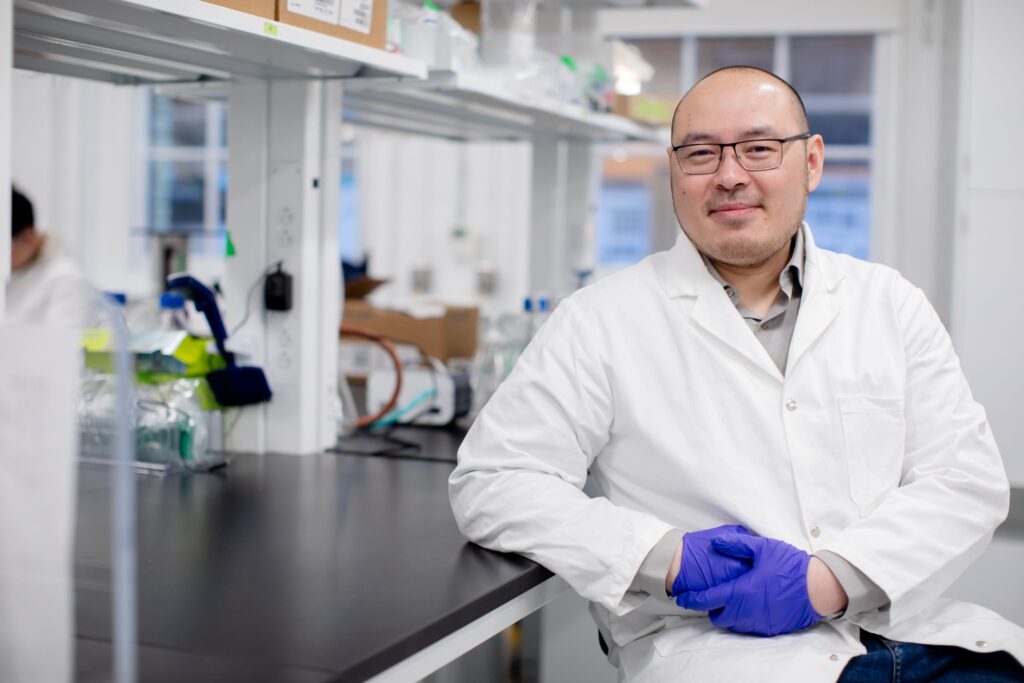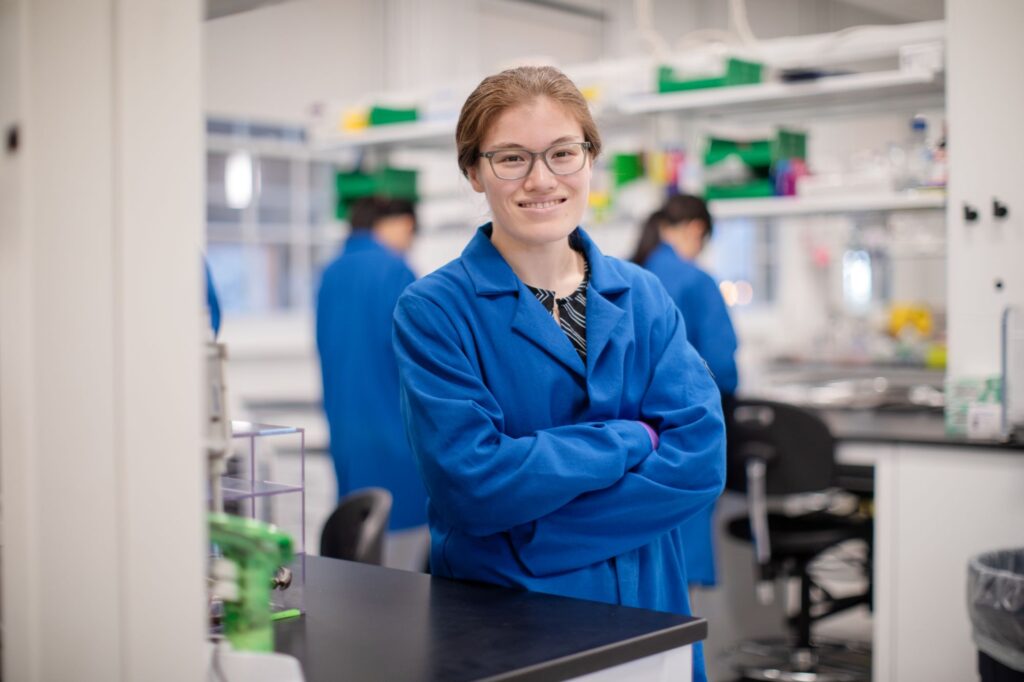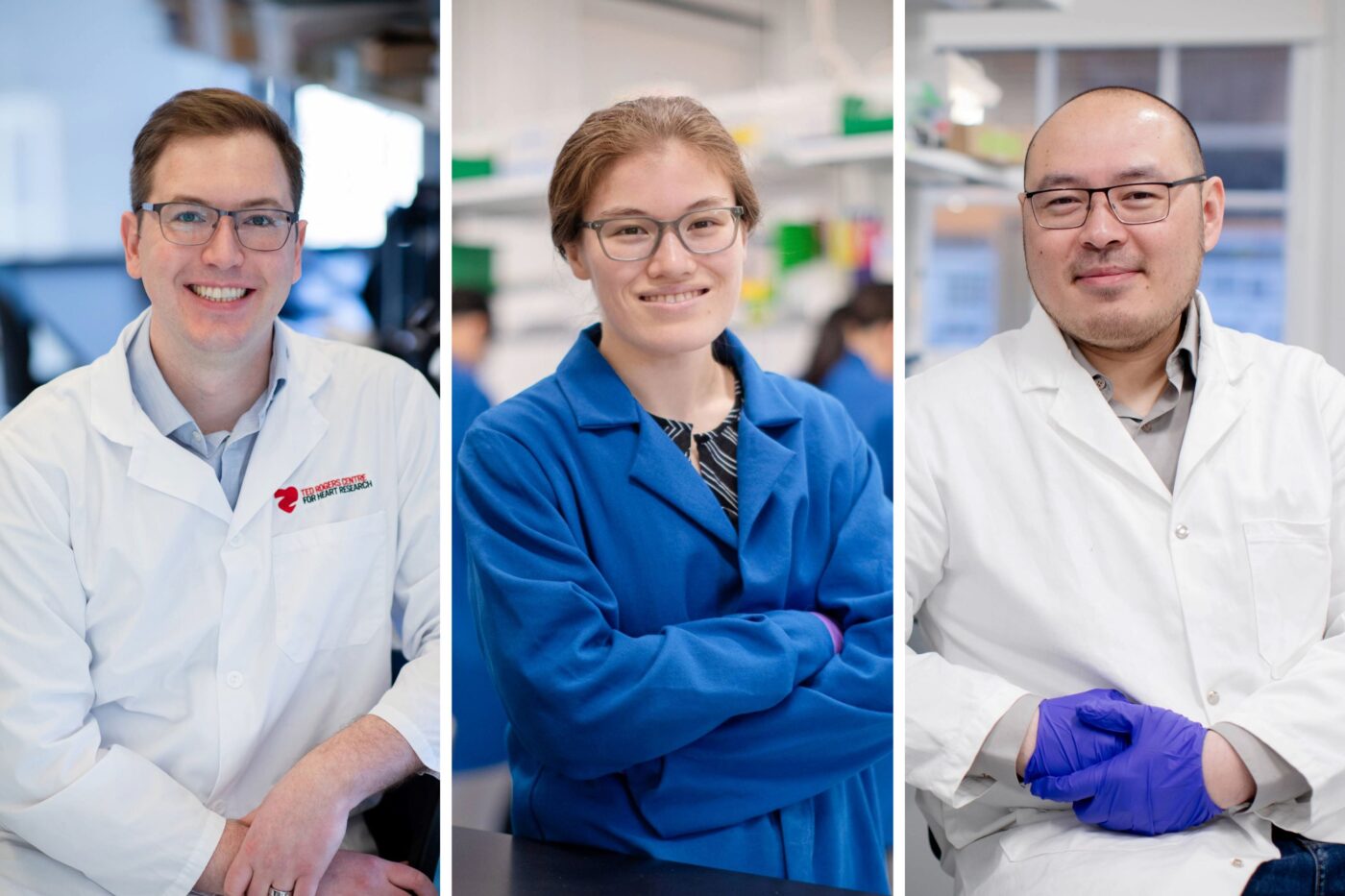Professors Aereas Aung, Daniel Franklin, and Caitlin Maikawa were awarded the Connaught New Researcher Awards, which support early-career faculty members in establishing their research programs. They are among 8 researchers from the U of T Engineering who received support in the latest round. Read more about their proposed research projects below.

Engineering the next-generation vaccines against sexually transmitted diseases
Principal Investigator: Aereas Aung
Traditional vaccines, typically administered through injections, are proficient at generating antibodies in the bloodstream they aren’t as effective at producing antibodies in certain body tissues, such as the mucosal tissues in the cervix and rectum, where sexually transmitted infections (STIs) often enter the body. Professor Aereas Aung and his team aim to change that, by creating a new generation of vaccines that can bypass this barrier.
Professor Aung’s research proposes using a protein carrier to fuse with the STI antigens, allowing it to reach distant mucosal lymph nodes after injection.
Read more about his research in a recent feature on the U of T Engineering website.

Development of equitable pulse oximeters
Principal Investigator: Daniel Franklin
Professor Daniel Franklin’s project aims to improve the accuracy of pulse oximeters, which are devices used in hospitals to monitor patients’ blood oxygen levels. These devices work by shining light through a patient’s finger, but recent studies have shown that they can overestimate oxygen levels in patients with darker skin, potentially putting them at risk by making their condition appear better than it is.
To address this issue, Franklin and his team are developing a new wearable device that uses advanced sensors with multiple colors of light to accurately account for different skin tones. They are also creating an algorithm that adjusts for melanin, ensuring more accurate oxygen readings for everyone.

Affinity-directed dynamic polymer materials for biomarker sensing
Principal Investigator: Caitlin Maikawa
Professor Caitlin Maikawa’s research project focuses on developing a new way to detect inflammation in the gastrointestinal tract, particularly for people with inflammatory bowel disease (IBD), without the need for stool samples.
Monitoring inflammation levels regularly is important for predicting when a flare-up might happen so that patients can adjust their treatment in advance. However, current tests for inflammation markers require handling stool samples, which many patients find unpleasant and inconvenient. As a result, these tests are not often used as part of regular treatment.
Maikawa and her team aim to create special polymer materials that can detect inflammation markers through interactions similar to “molecular Velcro.” These materials will be designed to give a clear result without the need for stool samples, making it easier for patients to monitor their condition and manage their treatment.


